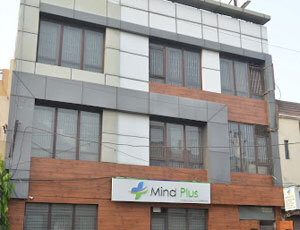What is Anxiety?
Anxiety is a feeling of fear, dread, and uneasiness. It might cause you to sweat, feel restless and tense, and have a rapid heartbeat. It can be a normal reaction to stress. For example, you might feel anxious when faced with a difficult problem at work, before taking a test, or before making an important decision. It can help you to cope. The anxiety may give you a boost of energy or help you focus. But for people with anxiety disorders, the fear is not temporary and can be overwhelming.
What are the causes of Anxiety?
The following are some of the causes of anxiety disorders:
What are the types of Anxiety?
1. Generalized Anxiety Disorder
Generalized anxiety disorder (GAD) usually involves a persistent feeling of anxiety or dread, which can interfere with daily life.
Symptoms of GAD include:
2. Panic Disorder
Panic attacks happen frequently and without warning in people with panic disorder. Even when there is no obvious risk or trigger, panic attacks are sudden episodes of great fear, discomfort, or a sense of losing control.
During a panic attack, a person may experience:
3. Social Anxiety Disorder
People with a social anxiety disorder may experience:
4. Phobia-Related Disorders
People with a phobia:
What are the signs and symptoms of ANXIETY?
Anxiety can trigger symptoms like:
Which are the treatment modalities available for Anxiety?
The purpose of all therapy approaches is to help you understand why you feel the way you do, what your triggers are, and how you may change your reaction to them. Some forms of treatment even impart useful methods for reframing unfavorable thoughts and altering habits.
The therapy corresponds to your unique symptoms and diagnosis because anxiety disorders vary greatly. It can be carried out in a group, family, relationship, or individual situation. Depending on your particular symptoms and diagnosis, your therapist will choose how frequently and for how long you meet. Psychiatrists, psychologists, and other mental health practitioners use a variety of anxiety therapies.
The type of therapy you receive will also depend on your diagnosis and how severe your symptoms are.
6-Stage Rehabilitation Journey
ASSESSMENT & FORMULATION
STABILIZATION PHASE
SKILL BUILDING
FAMILY INTERVENTION
COMMUNITY TESTING/ THERAPEUTIC LEAVES
PRE AND POST-DISCHARGE CARE PLAN

Kalka, India
MindPlus, Kalka aims to change the way mental health is perceived and treated in North India. The he...more
![]() Post Operative Follow-up
Post Operative Follow-up
![]() Health Insurance Coordination
Health Insurance Coordination
![]() Private Rooms
Private Rooms
![]() International Cuisine
International Cuisine

Ludhiana, India
MindPlus, Ludhiana, has values that aim to change the way mental illnesses are understood and treate...more
![]() TV inside room
TV inside room
![]() Free Wifi
Free Wifi
![]() Rehabilitation
Rehabilitation
![]() Health Insurance Coordination
Health Insurance Coordination
Q1. Which are the highest-rated treatment centers for anxiety in India?
A1. It's time to get in touch with us if your anxiety is causing major problems in your life due to your anxiety state. With our experience and treatment options, you can recover quickly. The best care for anxiety in India is guaranteed by our holistic and 360-degree therapy approach. Our therapeutic approaches keep the problems of our patients under control until they are able to reclaim their healthy mental and physical states.
Q2. What is the average cost of anxiety treatment in India?
A2. Private sector organizations and freelance therapists charge between Rs 800-2,500 per session for each consultation. The patient wouldn't start to experience any improvements until two to three months of constant therapy.
Q3. What length of stay is required for anxiety treatment in India?
A3. The period of treatment for psychological issues is bound to vary from person to person. Basically, the type and length of the treatment should always be suitably suited to the kind and complexity of the patient's presenting problems. Compared to chronic issues, acute challenges typically require fewer therapy sessions. Additionally, the time of treatment varies depending on the kind of treatment being given; cognitive-behavioral treatments, which concentrate on a particular issue, are typically shorter than psychotherapies with a broader focus.
Q4. How is anxiety diagnosed?
A4. You should first consult your primary care physician to determine whether your worry is related to your physical health. He or she can look for indications of an underlying illness that might require treatment. If your anxiety is extreme, you might need to consult a mental health professional. A psychiatrist is a medical professional who focuses on identifying and treating disorders of the mind. A psychologist and several other mental health specialists are qualified to identify anxiety disorders and offer counseling (psychotherapy).
To assist in the diagnosis of an anxiety disorder, your mental health professional may: